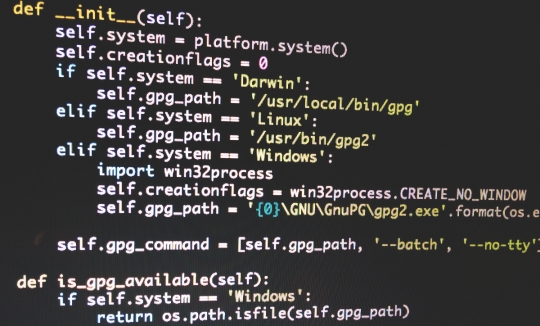First Look Publishes Open Source Code to Advance Privacy, Security and Journalism
WHISTLEBLOWING - SURVEILLANCE, 1 Jun 2015
27 May 2015 – The Intercept and its publisher, First Look Media, strongly believe in the benefits of free and open source software — in part because we rely on such software every day. To keep our journalists and sources safe, we use secure communication tools like the data-encryption system GnuPG, the Off-the-Record secure messaging protocol, the SecureDrop communications platform and the secure calling and texting app Signal. To publish on the web, we use the GNU/Linux operating system; the Apache web server; OpenSSL, a web encryption library; WordPress, the open-source blogging engine; and Piwik, which tracks web traffic. The list goes on.
We greatly appreciate the hard work of developers who give away their code to benefit the internet and the world. And today we’re excited to contribute back to the open source community by launching First Look Code, the home for our own open source projects related to privacy, security, data, and journalism. To begin with, First Look Code is the new home for document sanitization software PDF Redact Tools, and we’ve launched a brand new anti-gag order project called AutoCanary.
PDF Redact Tools
When The Intercept first launched, part of my job involved redacting documents from NSA whistleblower Edward Snowden before publishing them. Because we didn’t want to inadvertently publish sensitive information we’d intended to redact — as no less cautious an institution than The New York Times once did — I developed PDF Redact Tools, a simple command-line program for Mac OS X and Linux that helps with redacting, stripping metadata, and sanitizing PDFs in preparation for publishing.
AutoCanary
A warrant canary is a regularly published statement that a company hasn’t received any legal orders that it’s not allowed to talk about, such as a national security letter.
Canaries can help prevent web publishers from misleading visitors and prevent tech companies from misleading users when they share data with the government and are prevented from talking about it. One such situation arose — without a canary in place — in 2013, when the U.S. government sent Lavabit, a provider of encrypted email services apparently used by Snowden, a legal request to access Snowden’s email, thwarting some of the very privacy protections Lavabit had promised users. This request included a gag order, so the company was legally prohibited from talking about it. Rather than becoming “complicit in crimes against the American people,” in his words, Lavabit founder Ladar Levison, chose to shut down the service.
Warrant canaries are designed to help companies in this kind of situation. You can see a list of companies that publish warrant canary statements at Canary Watch. As of today, First Look Media is among the companies that publish canaries.
We’re happy to announce the first version of AutoCanary, a desktop program for Windows, Mac OS X, and Linux that makes the process of generating machine-readable, digitally-signed warrant canary statements simpler.
____________________________________
Read more about PDF Redact Tools on its new website.
Read more about AutoCanary on its new website.
Email the author: micah.lee@theintercept.com
Go to Original – firstlook.org
DISCLAIMER: The statements, views and opinions expressed in pieces republished here are solely those of the authors and do not necessarily represent those of TMS. In accordance with title 17 U.S.C. section 107, this material is distributed without profit to those who have expressed a prior interest in receiving the included information for research and educational purposes. TMS has no affiliation whatsoever with the originator of this article nor is TMS endorsed or sponsored by the originator. “GO TO ORIGINAL” links are provided as a convenience to our readers and allow for verification of authenticity. However, as originating pages are often updated by their originating host sites, the versions posted may not match the versions our readers view when clicking the “GO TO ORIGINAL” links. This site contains copyrighted material the use of which has not always been specifically authorized by the copyright owner. We are making such material available in our efforts to advance understanding of environmental, political, human rights, economic, democracy, scientific, and social justice issues, etc. We believe this constitutes a ‘fair use’ of any such copyrighted material as provided for in section 107 of the US Copyright Law. In accordance with Title 17 U.S.C. Section 107, the material on this site is distributed without profit to those who have expressed a prior interest in receiving the included information for research and educational purposes. For more information go to: http://www.law.cornell.edu/uscode/17/107.shtml. If you wish to use copyrighted material from this site for purposes of your own that go beyond ‘fair use’, you must obtain permission from the copyright owner.
Read more
Click here to go to the current weekly digest or pick another article:
WHISTLEBLOWING - SURVEILLANCE:
